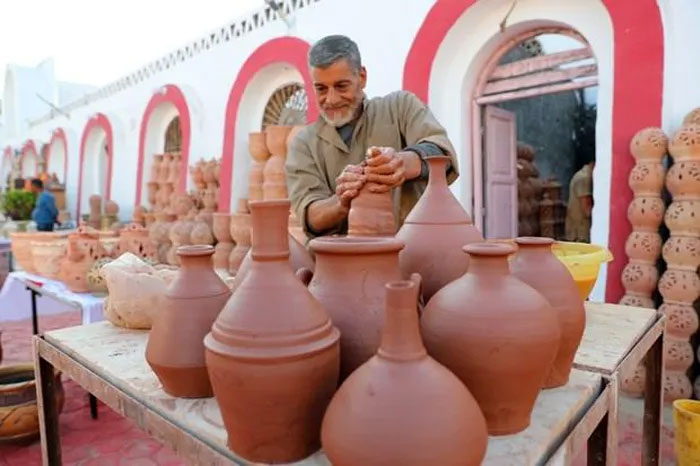According to Mustafa Waziri, the Secretary-General of the Supreme Council of Antiquities in Egypt, a Roman-era pottery workshop has been discovered, featuring multiple kilns, including two that were carved directly into the stone walls.

A potter demonstrating pottery in Egypt. (Illustrative image: Xinhua).
Egyptian archaeologists have uncovered a large pottery workshop dating back to the Roman period in Alexandria, located north of the capital, Cairo.
In a statement on April 11, the Egyptian Ministry of Tourism and Antiquities announced that a team of Egyptian experts working at the Tabet Matrouh site, west of Alexandria, successfully excavated a pottery workshop built at the beginning of the Roman period.
According to Mustafa Waziri, this workshop contains several kilns, including two that were sculpted directly into the stone walls.
Archaeologists also discovered another building located south of the aforementioned kilns. Ayman Ashmawy, head of the Antiquities Authority under the Supreme Council of Antiquities in Egypt, believes this could be a storage facility for everyday tools, as many cooking utensils and dishware were found inside.
Additionally, at this archaeological site, experts uncovered a large collection of coins featuring the likenesses of Alexander the Great, the god Zeus, and Queen Cleopatra. Most of these coins date back to the Ptolemaic dynasty.
Moreover, there were many fragmented pieces of terracotta statues depicting gods and women, as well as remnants of hooks or anchors from a boat.


















































